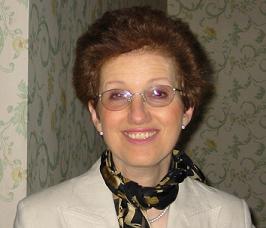The Times Archive – what does the lecture from 10th January 1984 have to do with NHS Reform and constitution?
When I was doing my PhD in Artificial Intelligence it used to be said that ‘it takes 17 +/- 3 years’ for ideas or research to move from academia to marketplace. It would seem that the same equation holds for the advanced ideas to be revisited again in the public life. Trouble is that while in technology and IT we can see the impact of their implementation from the results in the marketplace, when it comes to UK Government (Labour as well as Conservative) and Civil Service of the day (Central / Whitehall as well as Local Government) it remains at the level of rhetoric.
So, the enclosed article summarises Norman’s ideas from as long ago as early 1980’s. Now, almost 25 years later, one can quote major parts word for word and the reader could be forgiven for thinking they are newly written. Try the two excerpts below:
Mr Norman Strauss behaves similarly with ideas, packing more into one lecture than others would use during a year. On occasion, there is a need for interpretation. That is, I believe true of his recent speech on constitutional reform.
It starts from the well-worn, but topical, theme that the complexity and difficulty of modern government are setting a task clearly beyond the current system. He therefore identifies, as I would, what is essentially a management problem in the broadest sense. “Productivity and efficiency can apply just as much to ideas about improving central government as they can to say, the health service.
and immediately after:
Norman Strauss’s worry is that information and technology seem to be outgrowing the competence of governments to manage them and at the same time to provide adequate satisfaction for citizens and maintain their trust. This is happening in an age when demands for information for knowledge and for participative democracy are becoming strident. Here is the first new twist in the argument. Mr Strauss believes that “some issues are now so complex that leaders must no longer be allowed to monopolise facts, knowledge and resources. This is especially true when higher standards of education coupled with the information revolution make it possible for those with special expertise, interests or insights to comment on what is happening and to do so for the wider benefit of society”.
In Mr Strauss’s view, this goes beyond freedom of information legislation, in suggesting a fundamental change in structures and organization. He sees the new technologies as giving the possibility for the government to make available not only the facts it possesses, but also insight into its thinking, analysis. decisions and strategy.
So, compare the above with the rather simplistic NHS Report changes and the laughably pedestrian, actually downright dangerous measures and one-dimensional, targets still applied for measuring progress in spite of the unprecedented technological advances. Yet, the powers that be are closed to listening. This applies as much to the professionals with vested interests however good their intentions, as it does to politicians in Government. Worse still, the Opposition is even more blinded having learnt nothing from the Thatcher years!
Any ideas?
And now, enjoy the full article.
Times 200184 Thatcher critic_Sir Douglas on Norman
One can only hope that Lord Darzi does not take Yes Minister he is bringing with him to Desert Island as the way things have to be!
-
Archives
- April 2014 (1)
- September 2009 (1)
- August 2009 (2)
- July 2009 (2)
- June 2009 (1)
- May 2009 (1)
- March 2009 (2)
- February 2009 (1)
- December 2008 (3)
- November 2008 (1)
- July 2008 (1)
- June 2008 (1)
-
Categories
-
RSS
Entries RSS
Comments RSS

